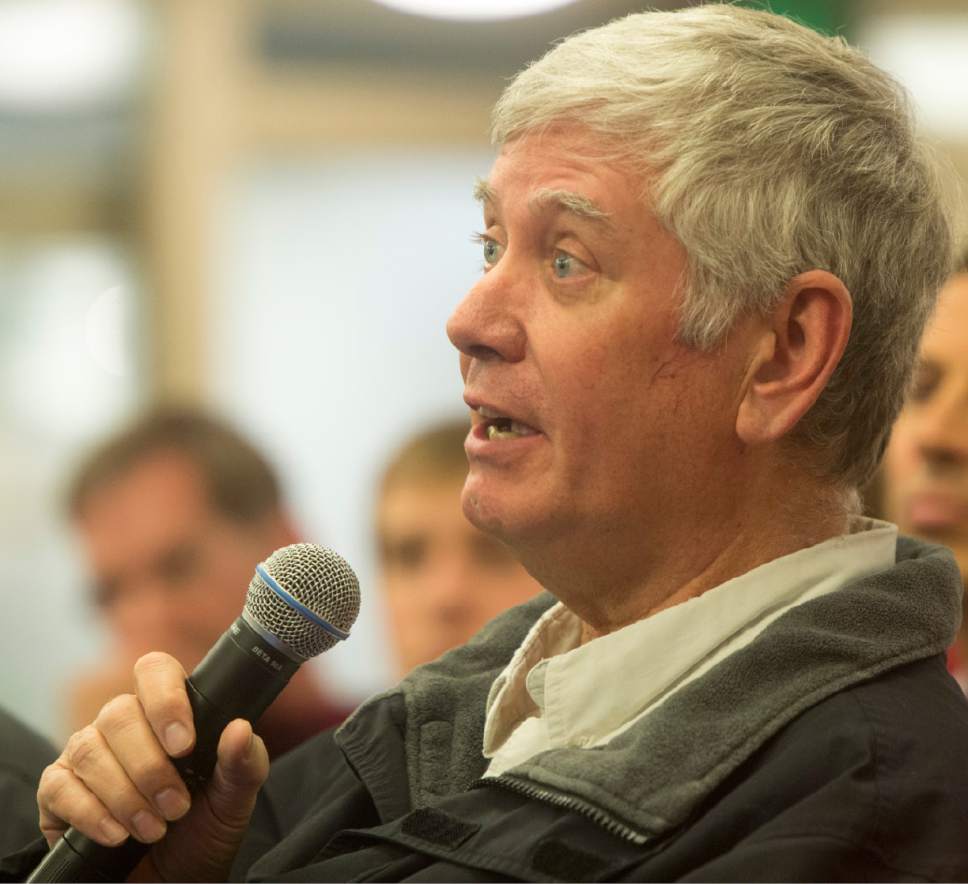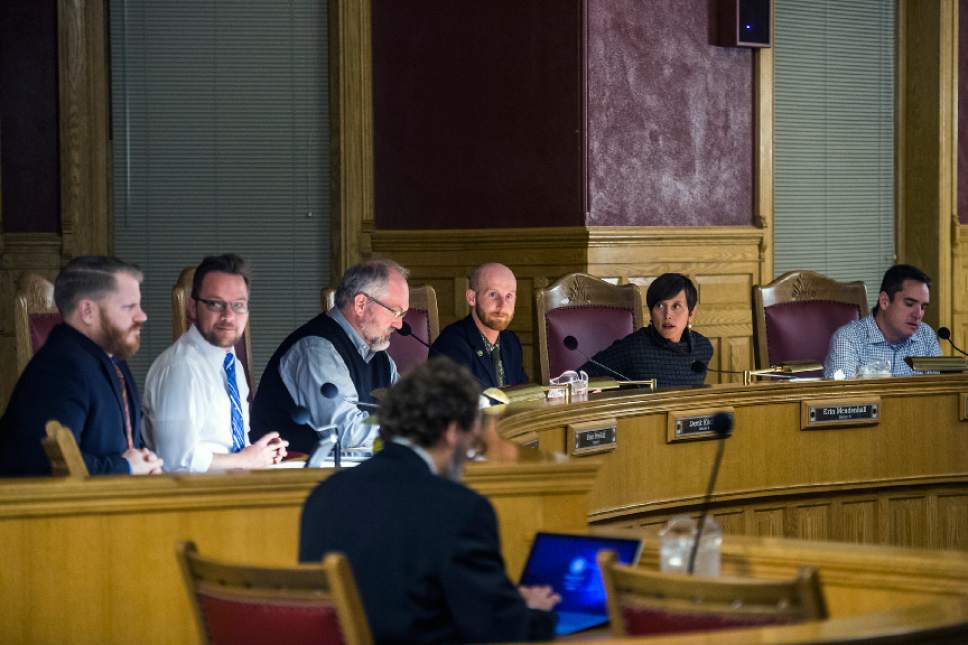This is an archived article that was published on sltrib.com in 2017, and information in the article may be outdated. It is provided only for personal research purposes and may not be reprinted.
Transparent it isn't.
Confusion reigns on the north end of City Hall's third floor where the Salt Lake City Council does the people's business.
It now appears the council was unaware the city attorney — beginning in February — has blocked the public release of audio recordings from closed-door council sessions regarding the selection of sites for new homeless shelters, which were announced in December.
One council member wondered whether the city attorney wasn't trying to keep the council from doing something it would regret later.
From early November to early December, in what became a controversial procedure, the council closed at least three of its work sessions to select four sites from a list of 19 potential shelter locations. The closed-door decision-making sparked fierce criticism from residents who accused the council of sabotaging the democratic process.
The latest hubbub surrounding the effort to keep the records protected has apparently led most council members to hunker down out of the line of fire. Since Thursday, council spokesman Dan Weist has referred all Salt Lake Tribune inquiries on the matter to the city attorney's office.
Neither Council Chairman Stan Penfold nor Vice Chairman Charlie Luke responded to numerous requests for interviews since Thursday.
But council members Andrew Johnston and Lisa Adams said Tuesday they were not informed when the city attorney denied a request for the records. They also were unaware of an appeal to the municipality that also was denied by Patrick Leary, chief of staff to Mayor Jackie Biskupski. Biskupski's spokesman later said Leary's involvement was a formality — that the city attorney made the decision to fight to keep the records closed.
Thursday, the State Records Committee, in a 3-2 vote, denied a petition for release of the records by neighborhood activist George Chapman. The majority members said they couldn't make sense of the law.
Chapman has accused the city of keeping the records secret for political reasons or to avoid embarrassment.
In an interview, Johnston said he didn't believe there was anything untoward in the closed sessions.
"As a general rule," he said, "I would like to release all documents."
He added, however, that he needed more information regarding the council's policy on such matters.
Adams, too, said there is nothing in the records that she would not release. "My view is, I didn't say anything in those meetings that I wouldn't want public."
But, she noted, releasing the records could put the municipal government on a slippery slope if it set a precedent.
"I would be in favor [of releasing the records], but I am reluctant to do it, knowing it might create complications down the road," she said. "I think the city attorney's office is trying to keep us from doing something that could have unintended consequences."
It's clear, however, the city is under no legal obligation to keep closed-door meeting records private, but has discretion to release them, acknowledged Catherine L. Brabson, senior city attorney.
Adams said that she was advised Tuesday that once a council session is closed, the discussion becomes a city record and can be released only by a joint agreement between the mayor and the council.
The mayor, however, could not vote to close a council meeting. And unlike the council, the mayor is not subject to Utah's Open and Public Meetings Act, which covers public bodies that meet with a quorum of members.
If the council and mayor do not act to release the records, they will, by law, become public in 75 years.





